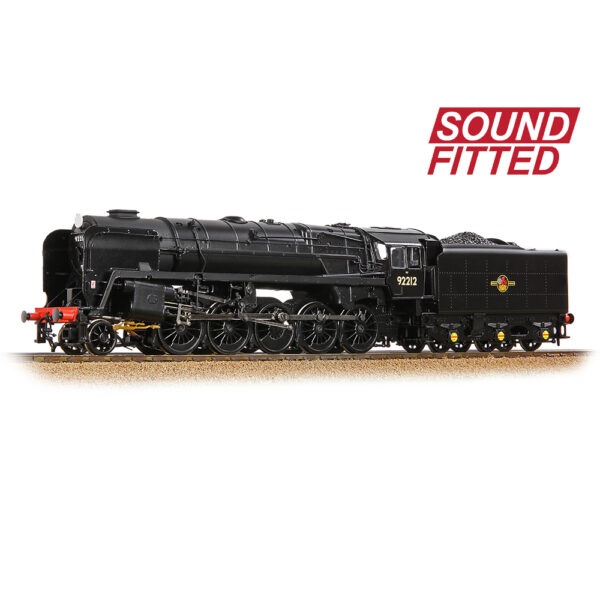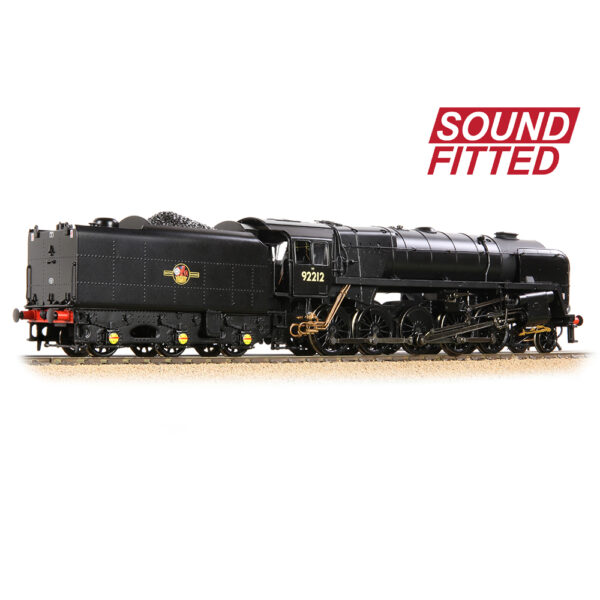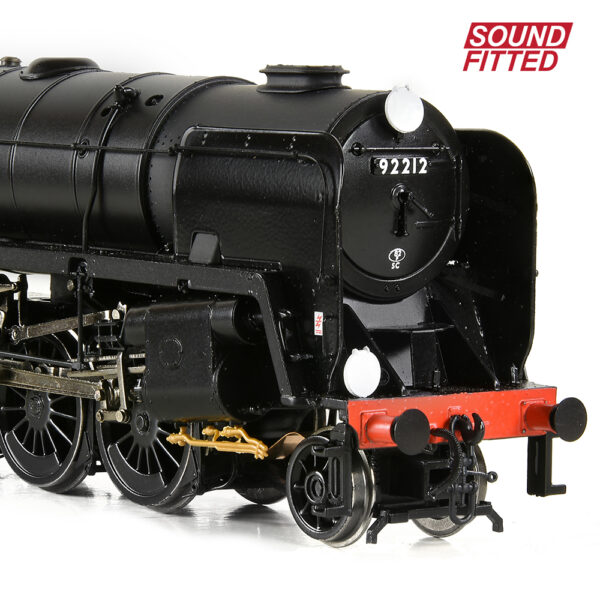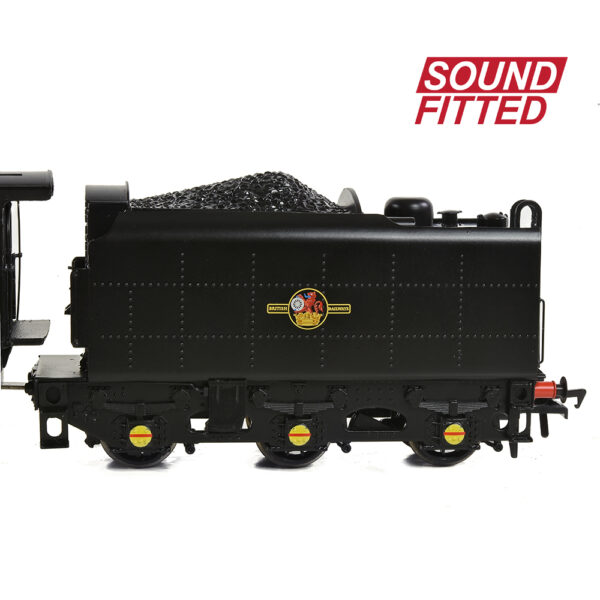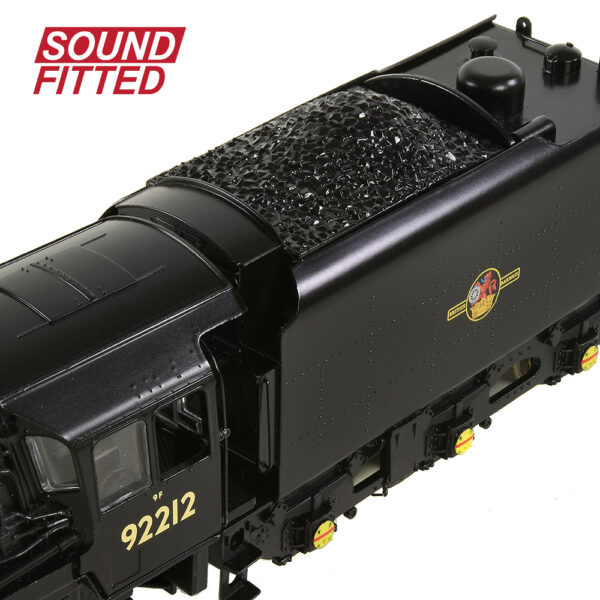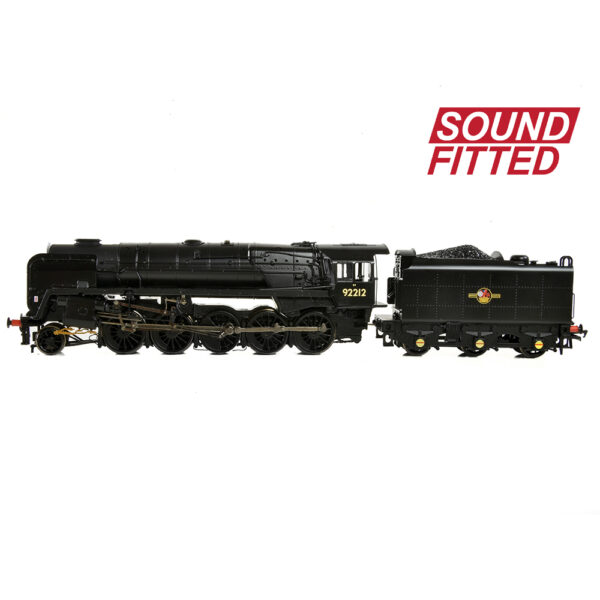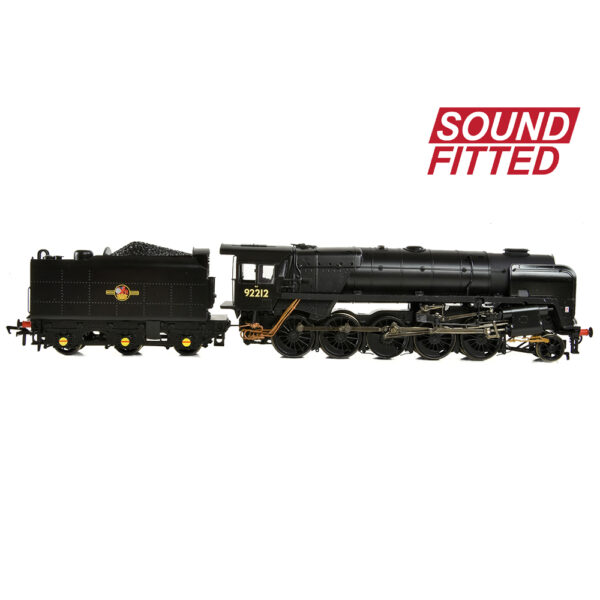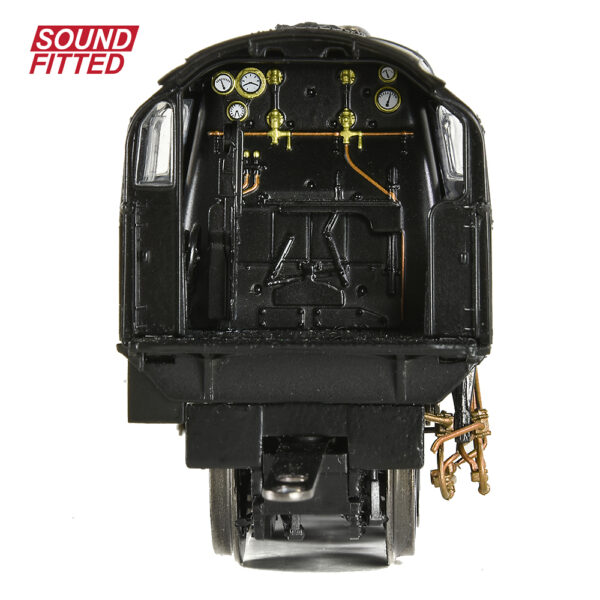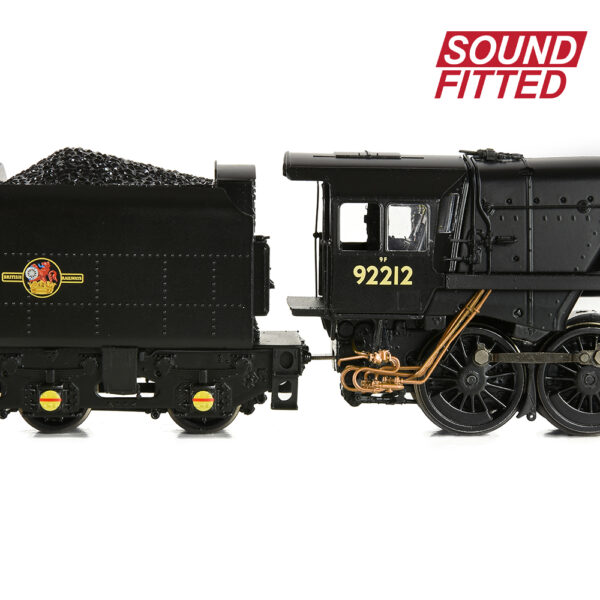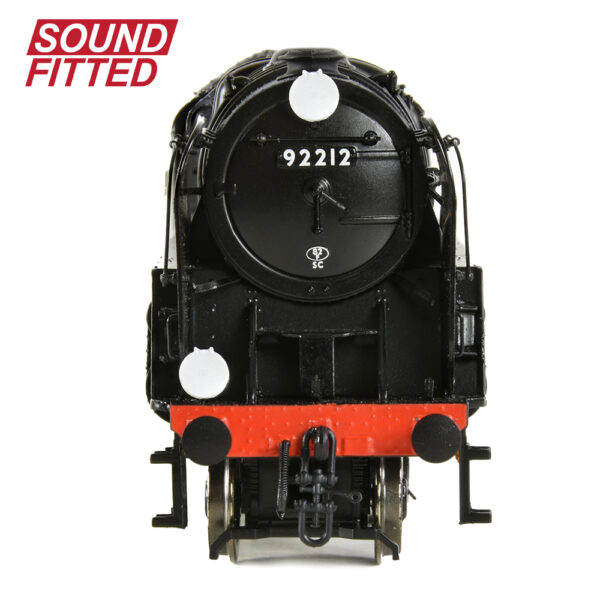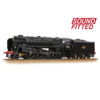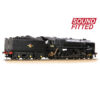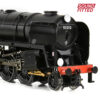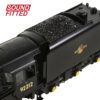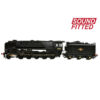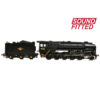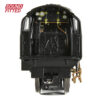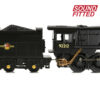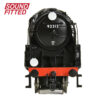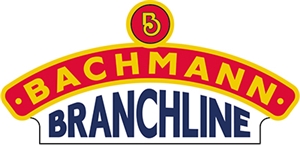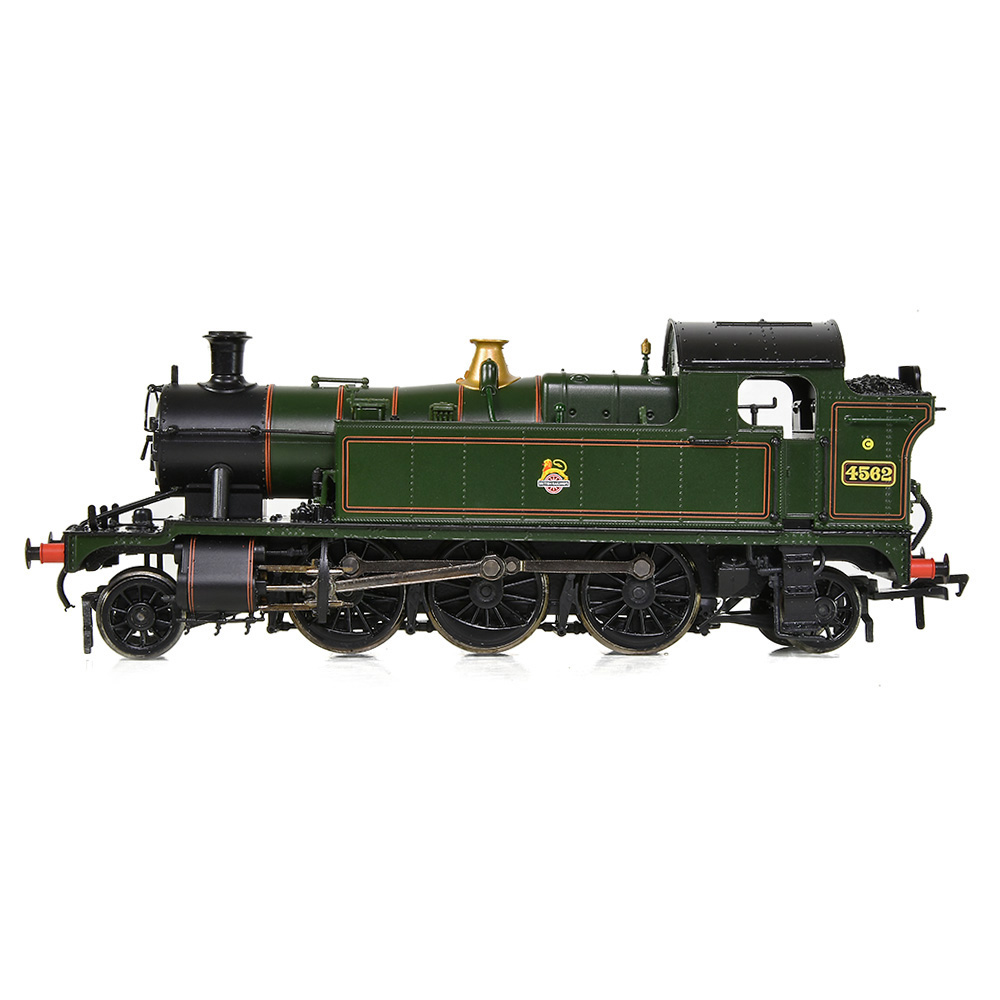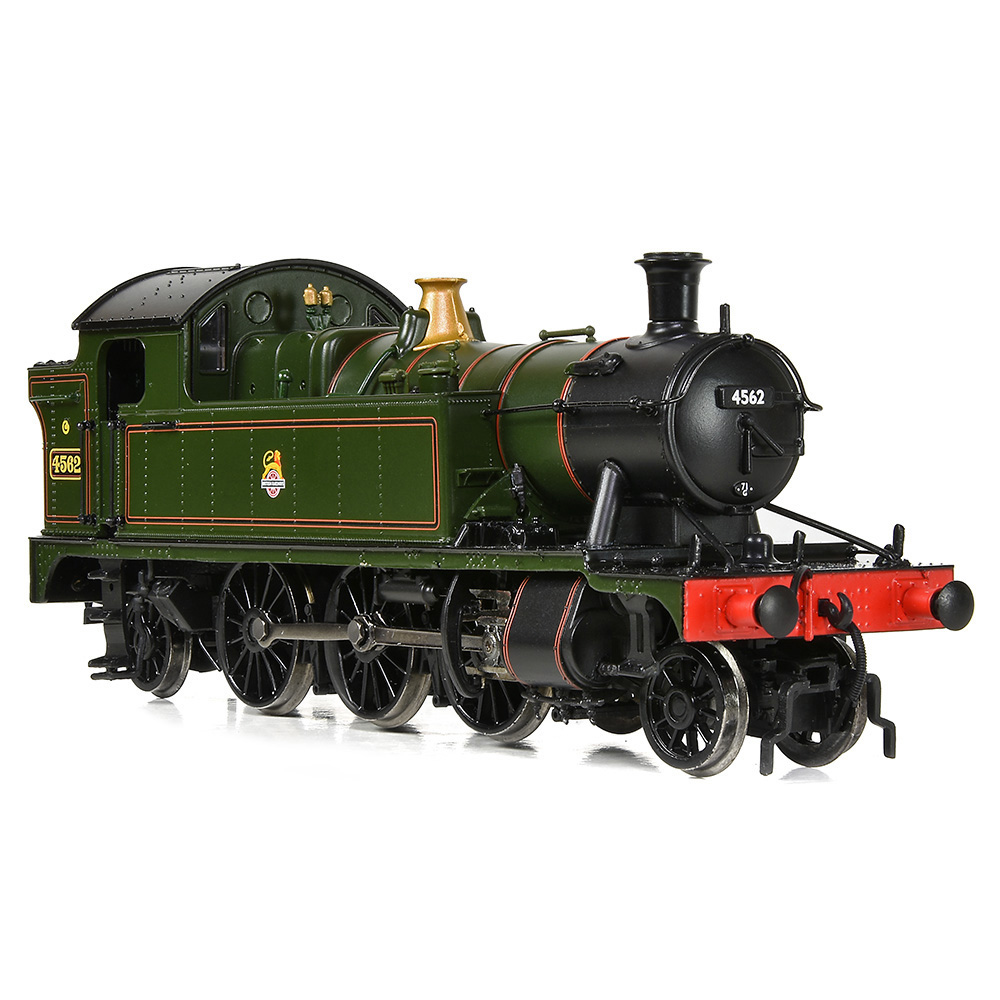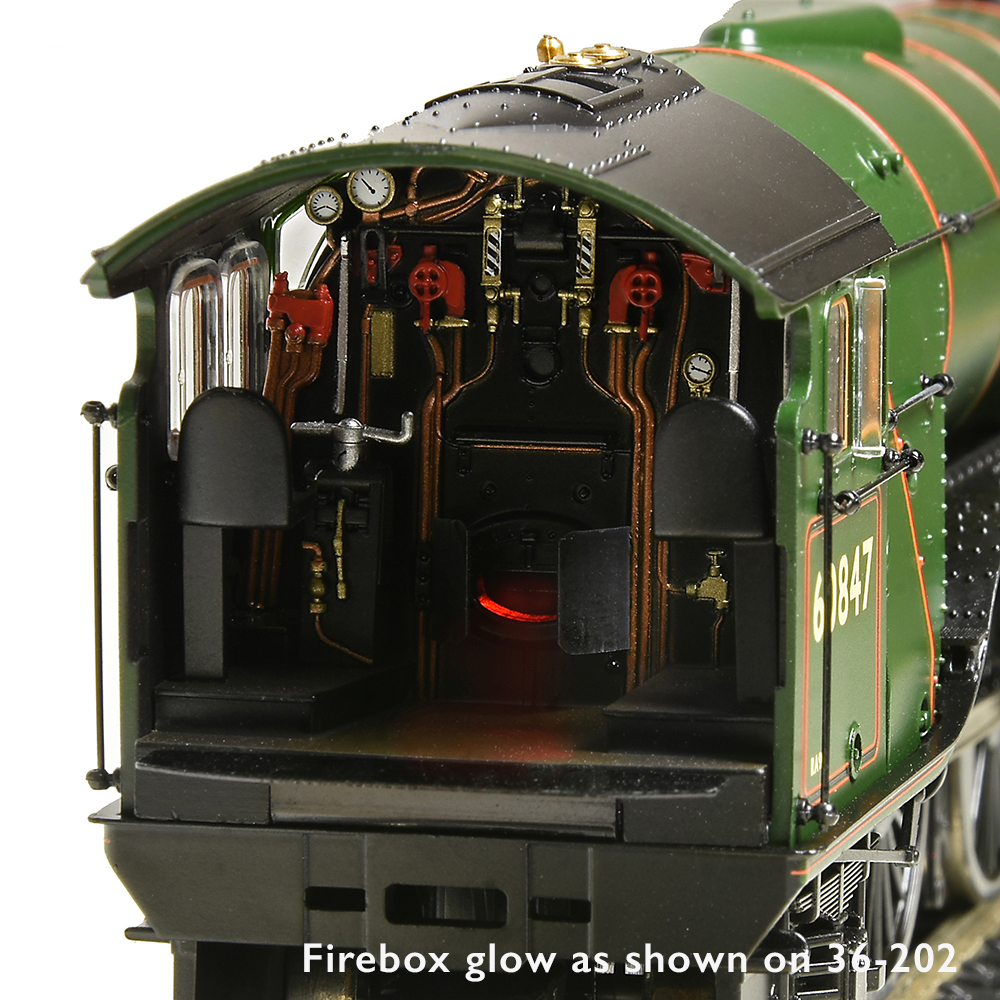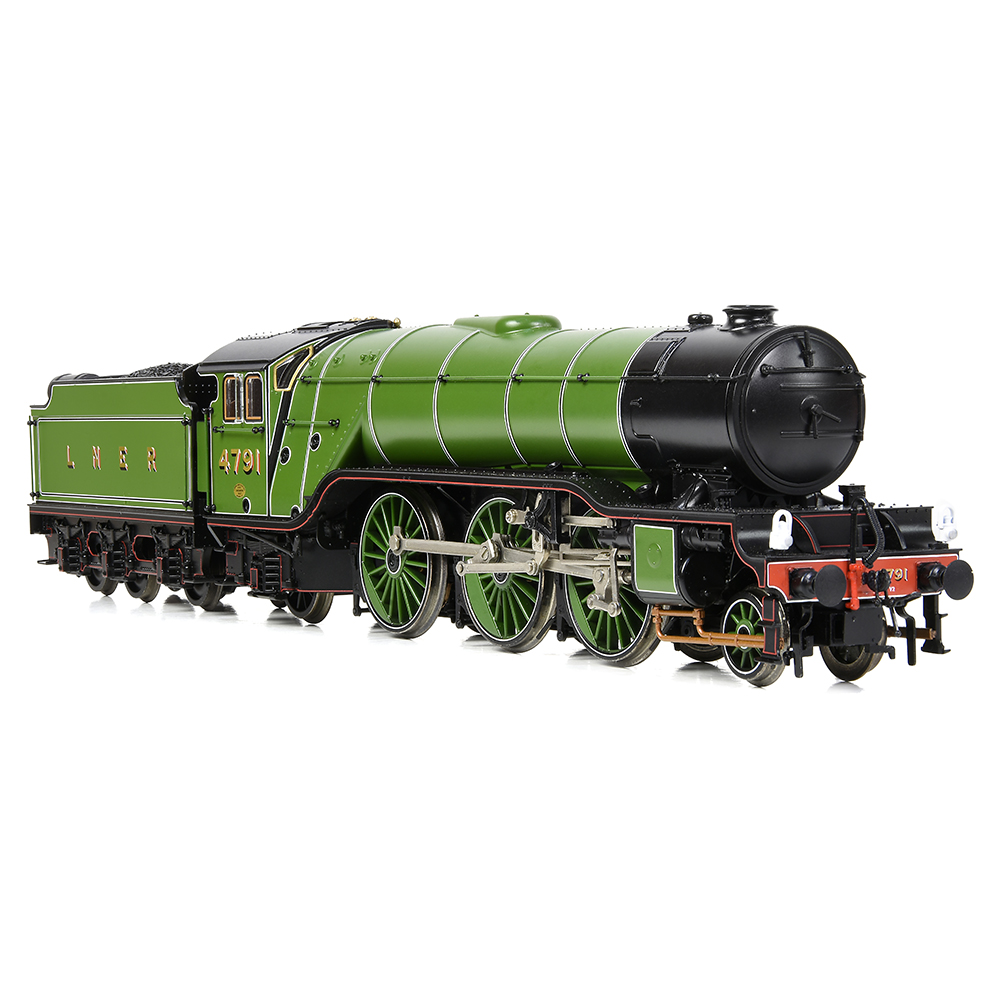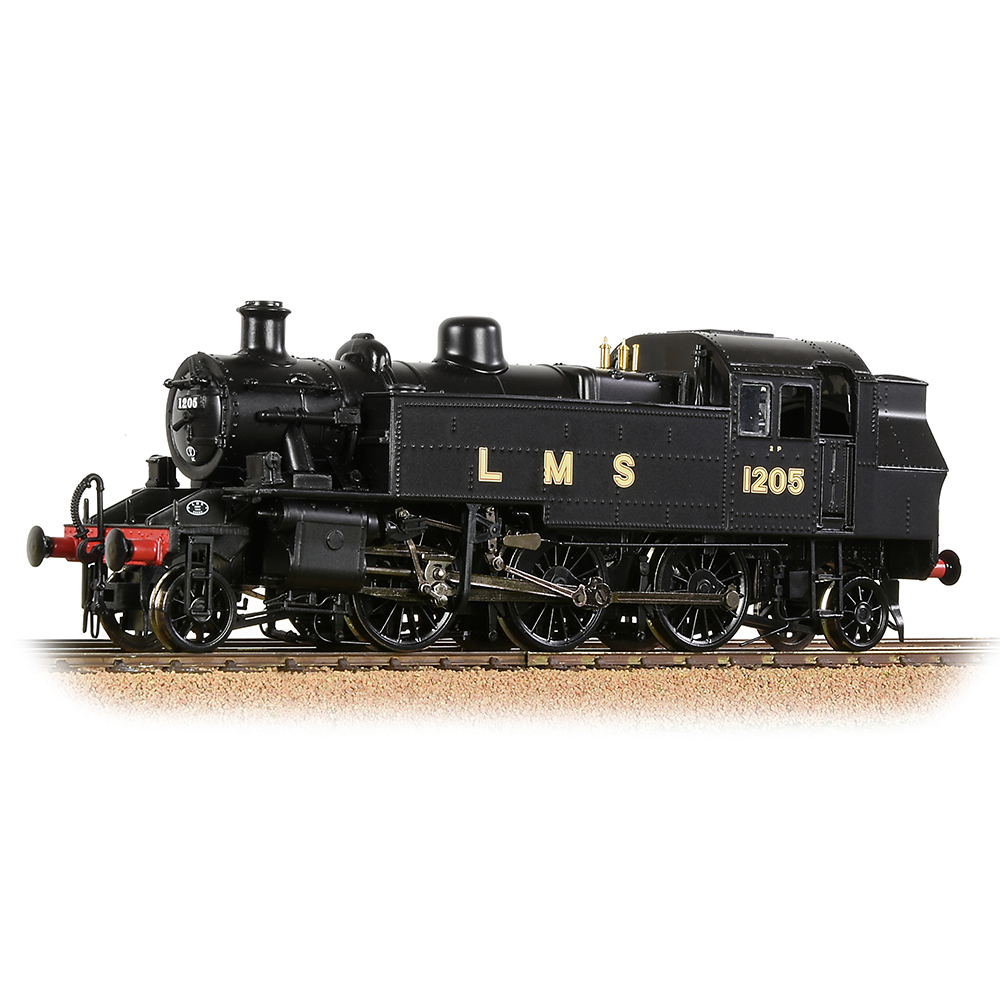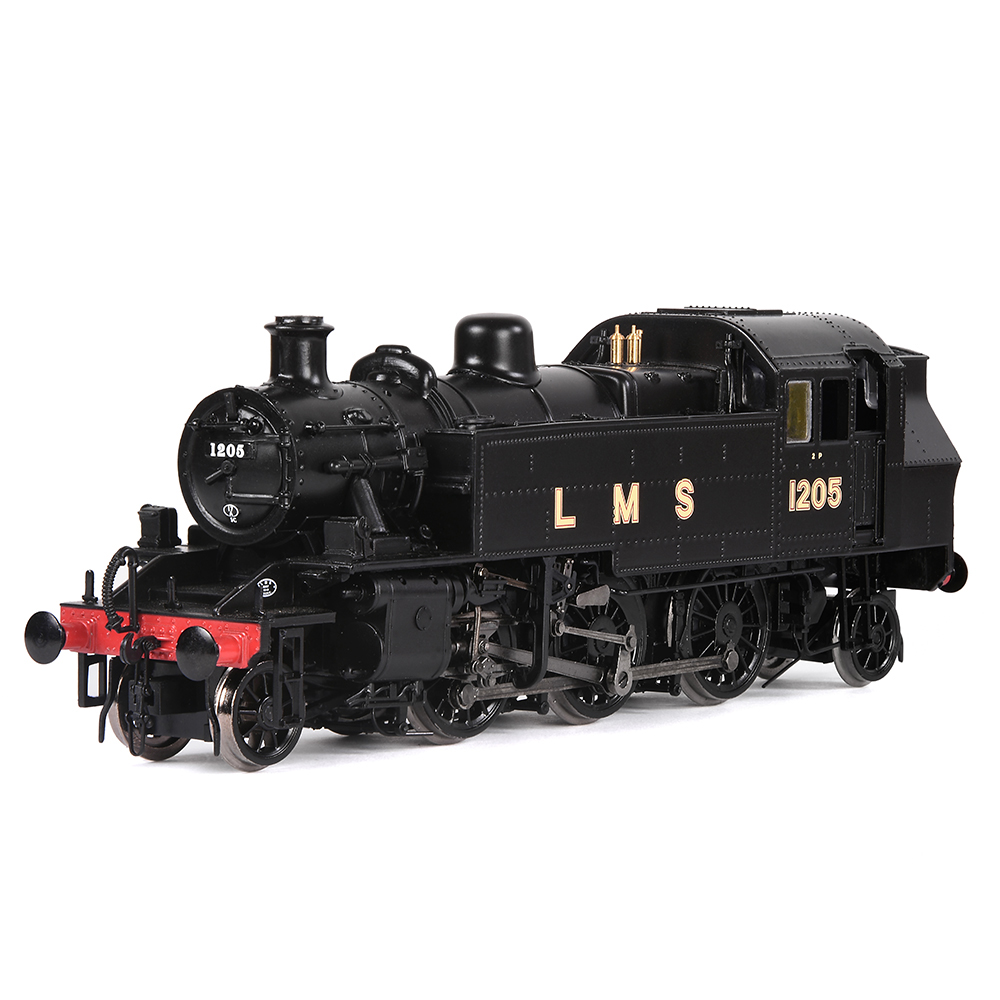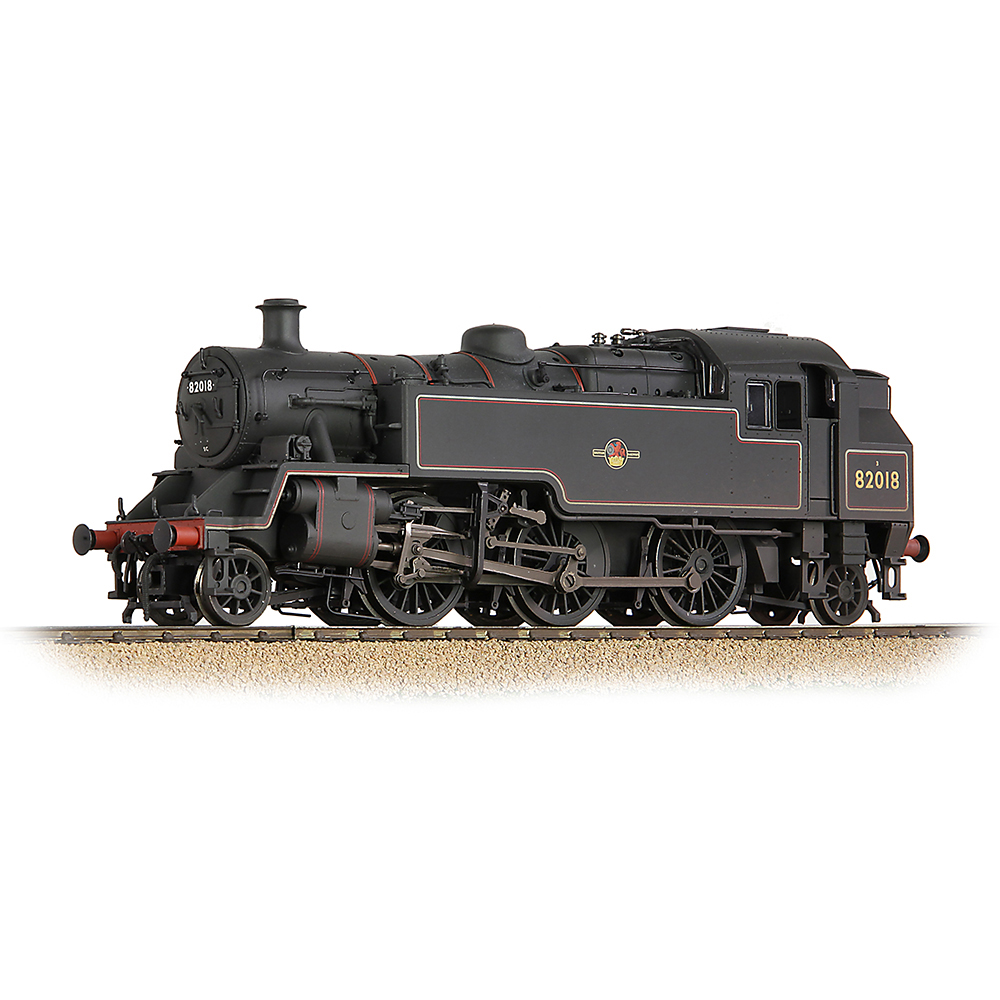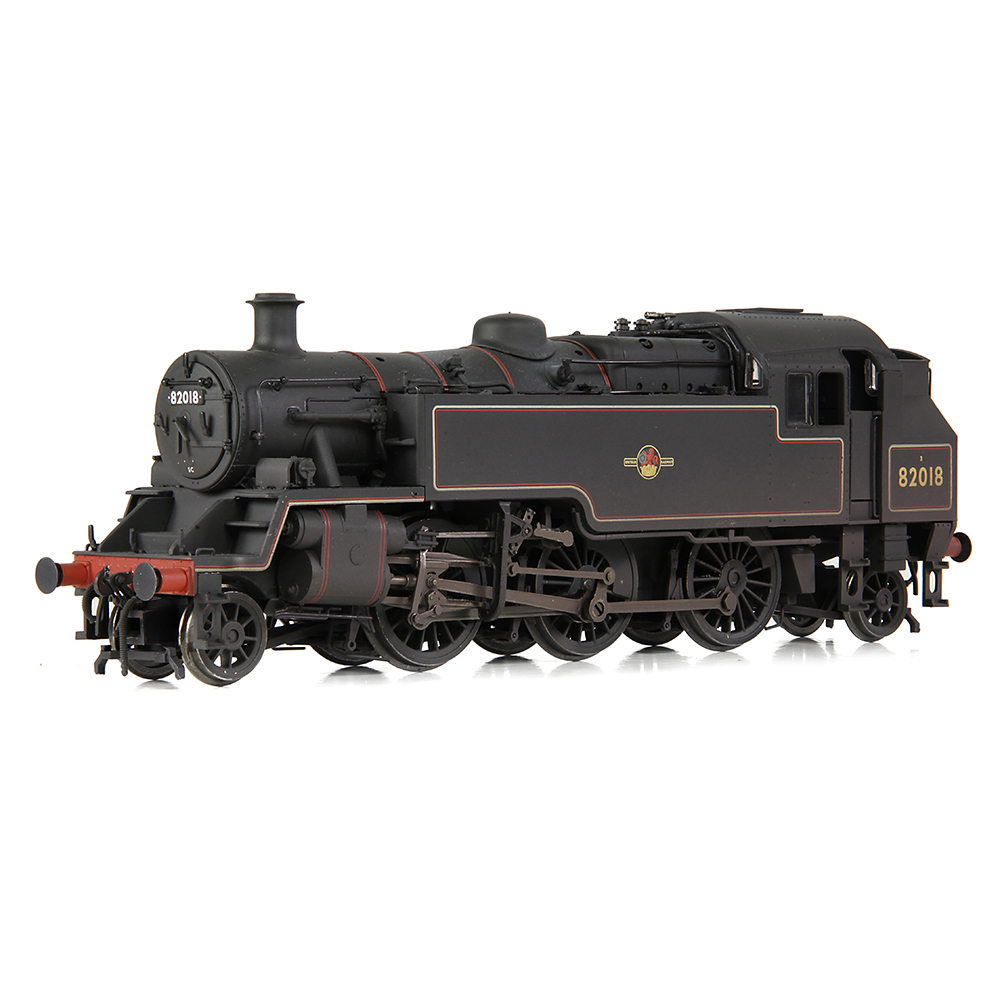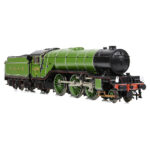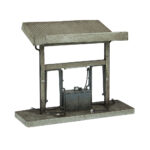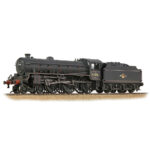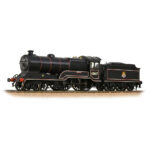As part of our Winter 2022 British Railway Announcements, we are delighted to present the BR Standard Class 9F as No. 92212 in BR Black livery with Late Crest. Depicting the preserved locomotive, one of several fitted with a double chimney, this model is supplied complete with SOUND FITTED.
The Bachmann Branchline OO scale BR Standard Class 9F locomotive is an imposing model and with its high fidelity, exquisite detailing and powerful performance, it is no wonder this is an Award Winning model. With an impressive weight and a presence befitting the strongest of BR’s standard steam locomotive classes, the Branchline 9F is a fine choice to haul prototypical trains on your model railway. Supplied complete with SOUND FITTED, you can enjoy the added dimension of realistic sound effects when operated on analogue control or DCC straight out of the box!
MODEL FEATURES:
- Bachmann Branchline OO Scale
- Era 5
- Locomotive is now Preserved
- Pristine BR Black (Late Crest) livery
- Running No. 92212
- Coupled to a BR1F Tender
- Double Chimney
- Removable Coal Load with coal space modelled below
- Adjustable Tender Drawbar (two settings)
- Accessory Pack
- NEM Coupling Pockets
- Sprung Buffers
- Powerful 5 Pole Motor
- SOUND FITTED – Fitted with a ESU Loksound V5DDC Sound Decoder – See below for the function list
- Length 275mm
SOUNDS:
F1 – Sound On / Sound Off
F2 – Brake (Non-Latching)
F3 – Cylinder Drain Cocks
F4 – Whistle (Playable)
F5 – Normal Load / Heavy Load
F6 – On – Firebox Door Opening / Off – Firebox Door Closing
F7 – Injectors
F8 – Whistle
F9 – Flange Squeal (Speed Related)
F10 – Shovelling Coal (F6 must be On to activate this function)
F11 – Blower
F12 – Hand Brake (locomotive will not move with the Hand Brake applied)
F13 – Water Tank Filling
F14 – Coupling/un-Coupling Clank
F15 – Safety Valve
F16 – Guard’s Whistle & Driver’s Response Toot
F17 – Coasting
F18 – Sound Fades Out / Sound Fades In
F19 – Shunt Mode (Reduces Speed)
F20 – Acceleration/Deceleration inertia off
F21 – Volume Control (LATCH = Volume On/Off) or (TRIGGER = cycles 6 Volume Levels)
F22 – Rail Join Clatter
F23 – AWS
Analogue Users: Normal-load running sounds, acceleration steam chuff sounds and any other automatic and randomised sounds can be enjoyed when using this model on analogue control (DC) straight from the box – these sounds will play automatically when power is applied!
STANDARD CLASS 9F HISTORY
The British Railways BR Standard Class 9F 2-10-0 was introduced from 1954, with a total of 251 built at BR’s Swindon Works (53) and Crewe Works (198). Designed by Robert Riddles, the 9F is just one of Riddles’ BR Standard designs, with different Classes designed for specific duties with the vision that such standardisation would bring improved efficiencies to BR operations. The Class was designed primarily to haul fast, heavy freight trains, but the 9Fs also found favour on passenger turns, in particular summer holiday specials when their lack of steam heating capabilities did not present a problem.
Impressive in both size and performance, the 9Fs’ lives were cut shockingly short with No. 92220 ‘Evening Star’ – the 999th BR Standard to be built and the final steam locomotive outshopped by British Railways – entering traffic in 1960, only 4 years before the first examples were withdrawn. ‘Evening Star’ itself did not fare much better and was withdrawn in March 1965 after just 60 months in traffic – thankfully the locomotive was saved for the National Collection.
Despite the early withdrawals, some 9Fs continued in traffic until the final months of steam on British Rail and the last was withdrawn in June 1968. In addition to ‘Evening Star’, eight further 9Fs were purchased by the preservation movement, mainly from the Woodham Brothers Scrapyard in Barry, but so far only six have been returned to serviceable condition in the preservation era.

